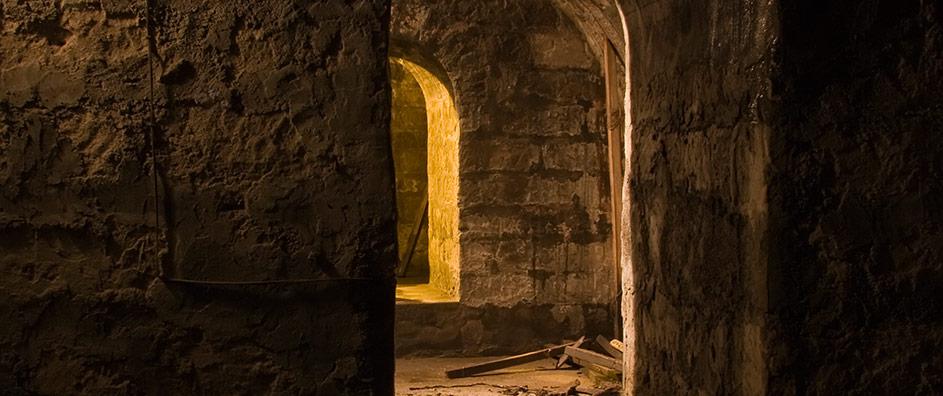The Baha’i Faith, with its principles of unity, justice, and compassion, has its origins steeped in profound historical complexities. One may be intrigued by the stark contrast between the faith’s exalted tenets and the grim realities surrounding its inception. This juxtaposition is poignantly exemplified by the narrative of a revelation that emerged from a dungeon. The story of Baha’u’llah, the founder of the Baha’i Faith, is one of resilience, transformation, and divine manifestation amidst dire surroundings. His imprisonment in the of Mazandaran, a place synonymous with suffering and despair, serves as a crucial framework for understanding the foundation of one of the world’s newest major religions.
To explore the intellectual and spiritual significance of Baha’u’llah’s experience in the dungeon, one must first acknowledge the historical context of his imprisonment. The 19th-century Iran was rife with sociopolitical upheaval. As the Bab, a forerunner to Baha’u’llah, sparked a religious movement advocating for spiritual and social reformation, opposition grew vehemently from various sectors of society. Consequently, Baha’u’llah, who was initially a key supporter of the Bab, faced imprisonment and persecution. The dungeons of the Iranian establishment became a crucible where ideas both extraordinary and revolutionary began to crystallize.
The horrid conditions of the dungeon are worthy of reference. Oftentimes, allegiances were formed and philosophies conceived under duress, and Baha’u’llah’s experience was no different. The brutalities he faced illuminated the depths of human suffering but simultaneously catalyzed a profound awakening. It was within the stifling darkness of confinement that he received divine revelations, articulating concepts that would soon resonate across continents and cultures. The discovery of such transformative ideas in a place of torment undermines the commonly held belief that enlightenment can only flourish in conducive environments.
One pivotal aspect of Baha’u’llah’s teachings is the notion of progressive revelation. This concept signifies that religious truths are not stagnant but rather evolve through successive manifestations of divine guidance. Baha’u’llah posited that all major world religions are part of a cohesive, unfolding plan led by a succession of Prophets or Manifestations of God, including Moses, Jesus, Muhammad, and ultimately, the Bab and Himself. This overarching narrative suggests that the principles of justice, equality, and unity are universal and timeless, echoing throughout history and intertwining the destinies of humanity.
The revelations received by Baha’u’llah in the dungeon illuminate the essence of his teachings. They emphasize the importance of unity in diversity—an idea that recognizes the multiplicity of human experience while striving for collective harmony. Baha’u’llah articulated that humanity, as a single entity, must adopt practices of tolerance and understanding, fostering peace rather than strife. This proclamation resonated deeply in a world marked by division and conflict, drawing attention to the latent potential for reconciliation embedded within human existence.
Furthermore, the theme of justice is intricately woven into Baha’u’llah’s teachings. Justice, both as a principle and a practice, is central to his vision for a better world. He asserted that any society lacking justice would ultimately falter. This perspective posits justice not merely as an abstract ideal but as a practical necessity—an imperative for sustainable progress. By advocating for the betterment of society through just governance and equitable treatment of all individuals, Baha’u’llah’s insights challenged existing social structures and inspired movements for reform.
Baha’u’llah’s revelations also encompass a strong emphasis on the education of individuals, particularly in terms of the equality of men and women. It is noteworthy that the teachings advocate for empowering women, recognizing their pivotal role in shaping the future. Higher education and equal opportunities are crucial tenets that reflect a progressive perspective on societal development. This understanding urges adherents of the faith to take action, fostering educational initiatives that transcend discrimination based on gender, race, or class.
Moreover, the doctrine of the oneness of humanity becomes increasingly apparent within the context of the dungeon. In the face of adversity, Baha’u’llah called upon humanity to dissolve the barriers that divide it. The essence of brotherhood and sisterhood becomes a call to action, urging followers to transcend nationalistic and sectarian affiliations. This radical inclusion emphasizes the shared humanity and common destiny of all peoples, appealing to aspirational ideals in an increasingly polarized world.
From the depths of despair, Baha’u’llah’s revelations emanate messages of hope, resilience, and transformation. The notion that illuminating truths could emerge from the darkness of a dungeon speaks to the resilience of the human spirit. It highlights the potential for profound change even in the direst of circumstances, positioning suffering as a potential catalyst for deeper understanding and spiritual awakening.
In conclusion, the origin of the Baha’i Faith in the context of a dungeon is emblematic of a profound spiritual awakening that resounds through its teachings. It challenges conventional perceptions of suffering and revelation, urging followers to transcend their environments and embrace universal principles of justice, unity, and education. By doing so, Baha’u’llah’s message reiterates humanity’s intrinsic capacity for progress and enlightenment, inspiring individuals to take meaningful action in pursuit of a more just and united world.
